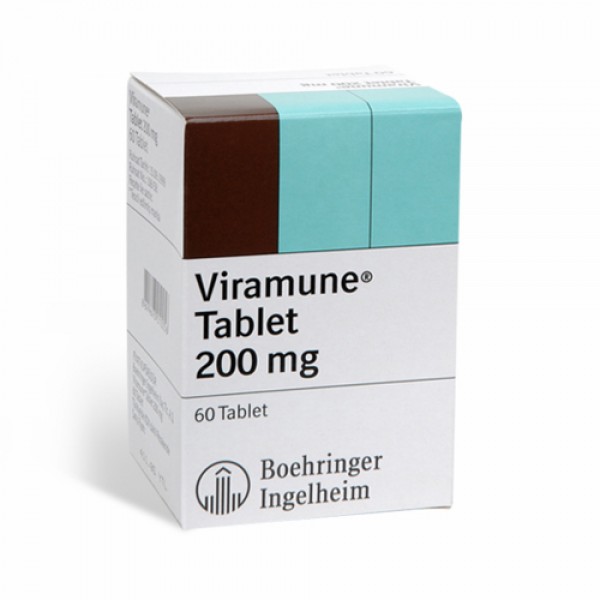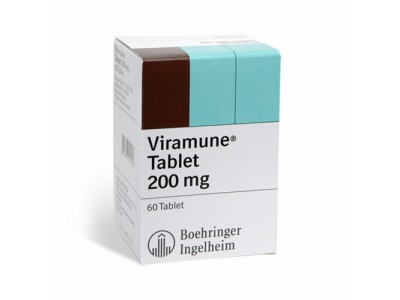Viramune, also known by its generic name Nevirapine, is an antiretroviral medication commonly used in the treatment of HIV (Human Immunodeficiency Virus) infection. It belongs to the class of drugs known as non-nucleoside reverse transcriptase inhibitors (NNRTIs). This medication is available in tablet form and is prescribed as part of a comprehensive HIV treatment regimen.
Nevirapine works by inhibiting the reverse transcriptase enzyme in HIV, which is essential for the virus to replicate. By doing so, it helps reduce the viral load in the body and slows down the progression of the disease. It is important to note that Nevirapine is not a cure for HIV but rather a means to manage the virus effectively.
Viramune tablets are typically taken orally, with or without food, as directed by a healthcare provider. The dosing schedule and the number of tablets taken may vary depending on the patient's individual circumstances, such as their overall health, other medications being used, and the stage of their HIV infection.
As with any medication, there can be potential side effects and interactions with other drugs. It's crucial for patients to discuss their medical history and current medications with their healthcare provider before starting Nevirapine. Common side effects may include rash, fever, liver problems, and gastrointestinal issues. In some cases, these side effects can be severe, so close monitoring by a healthcare professional is necessary.
Viramune has been an essential component of HIV treatment regimens for many individuals, but its use should be closely supervised by a healthcare provider to ensure its safety and effectiveness. It's important for patients to adhere to their prescribed dosage and keep regular appointments with their healthcare team for monitoring and adjustments as needed. In the next response, I'll provide more information about the precautions and potential interactions associated with Nevirapine.
Nevirapine, also marketed as Viramune, is a pivotal part of the antiretroviral therapy used to manage HIV infection. It falls under the category of non-nucleoside reverse transcriptase inhibitors (NNRTIs). Typically dispensed in tablet form, this drug is integral in the holistic approach to HIV treatment.
Nevirapine exerts its therapeutic effect by targeting the reverse transcriptase enzyme crucial for HIV replication. This mechanism reduces the viral load within the body, effectively slowing the advancement of the disease. It is essential to recognize that Nevirapine doesn't offer a cure for HIV; instead, it acts as a means to control the virus's proliferation.
Viramune tablets are usually administered orally, with or without food, based on the healthcare provider's guidelines. The dosage and regimen may vary depending on individual factors like overall health, concomitant medications, and the stage of HIV infection.
Like all medications, Nevirapine has potential side effects and interactions with other drugs. Patients should discuss their medical history and ongoing treatments with their healthcare provider prior to initiating Nevirapine therapy. Common side effects encompass skin rashes, fever, liver complications, and gastrointestinal disturbances. In severe instances, these side effects require close monitoring by a healthcare professional.
Viramune is a critical component of many HIV treatment plans, but its administration necessitates vigilant oversight by a healthcare provider to guarantee safety and efficacy. Adherence to the prescribed dosage and consistent appointments with the healthcare team are essential to ensure effective management of HIV while minimizing potential complications. In the following response, I will delve into precautions and potential drug interactions associated with Nevirapine
There are no reviews for this product, be the first to leave your review.

No questions about this product, be the first and ask your question.





